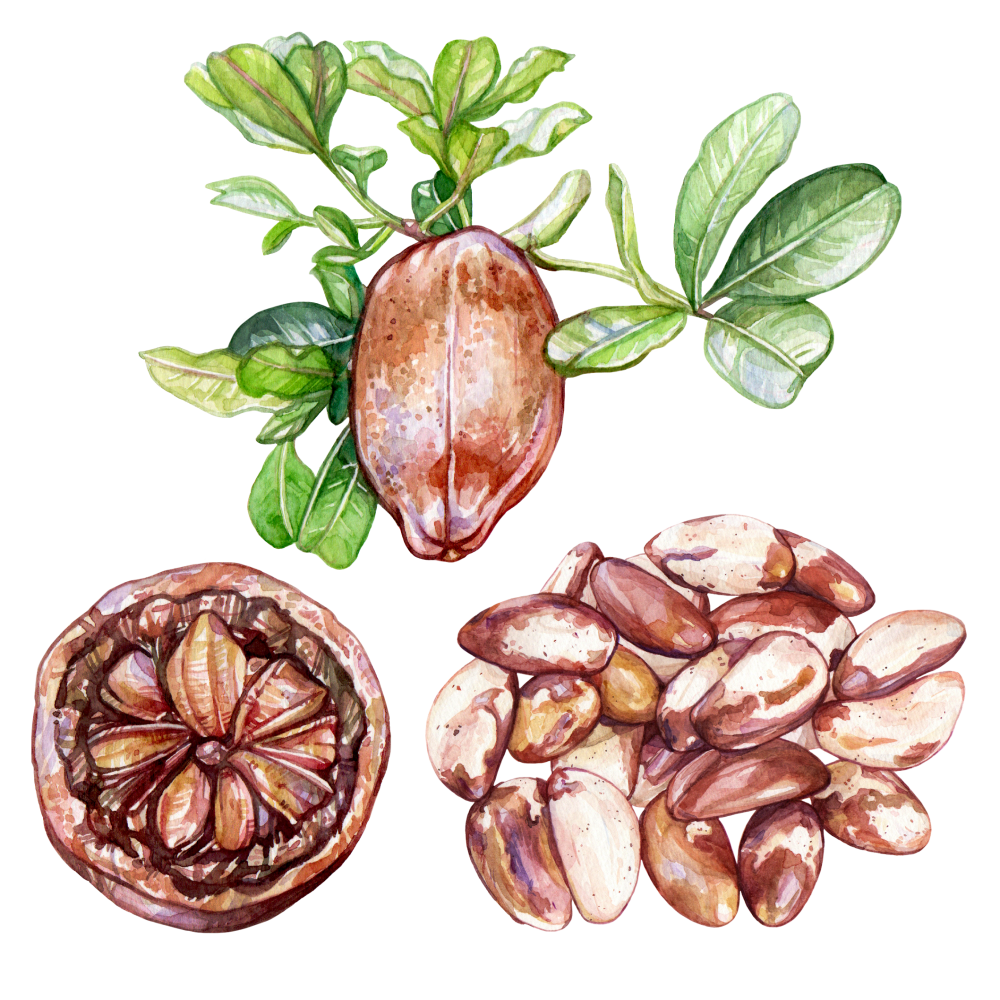Brazil Nut

Latin Name: Bertholletia excelsa
Other Names: Pará nut (Brazilian Portuguese)
Uses: nut
What are Brazil nuts?
Brazil nuts are the largest in a bowl of mixed nuts. (There are technically larger nuts, but they don’t typically make an appearance on snack trays.)
Why are Brazil nuts healthy?
All tree nuts are good for you, and Brazil nuts are no exception. Their standout quality is as a source of selenium, a trace mineral that’s especially important for thyroid function. Just one Brazil nut has more than your daily requirement of selenium! They’re also excellent sources for other minerals like copper, manganese, magnesium, and zinc, and the healthy fats that nuts are famous for.
What do Brazil nuts taste like?
Brazil nuts have a dense, oily meat with a sturdy crunch. Their flavor is buttery and aptly nutty. Their texture and flavor is somewhat similar to coconut, and they take on a warm-toasty aroma when roasted.
How do I use Brazil nuts?
Brazil nuts shells are very hard and require a good nutcracker and strong hands to access the meat within. Or you can buy them shelled. Their substantiality makes them a great choice for gluten-free, protein-rich pie shells: just pulverize them in a food processor and press them into a pie or tart pan (with or without sweetener, depending on the application). You can also use them for nut butters and plant-based milks and cheeses.
What do Brazil nuts pair well with?
The flavor of Brazil nuts is similar enough to other nuts that they can be used relatively interchangeably; their toasty/buttery taste pairs well with dark chocolate and citrus, and their creaminess makes them a nice addition to curries.
Where do Brazil nuts grow?
Take a guess. Glibness aside, Brazil nuts do indeed grow in Brazil, though their range extends to elsewhere in the Amazon rainforest, where they’re among the largest and longest-living trees. Like many rainforest species, Brazil nuts are threatened with extinction due to deforestation.
How to buy Brazil nuts:
It's better to buy your nuts still in the shell, since they'll stay fresher much longer that way. If you're buying pre-shelled nuts, make sure they don't smell or taste rancid. Brazil nuts are high in oils that tend to turn rancid in the wrong conditions. Avoid this by storing them in the freezer, where they’ll keep for about two years.
Surprising Brazil nut fact:
One Brazil nut contains around 68-91 micrograms of selenium, which is more than the recommended daily amount.iii Though selenium is an essential trace element, as with anything, too much of it can be toxic (400 mcg is considered the upper intake limit for adults).



